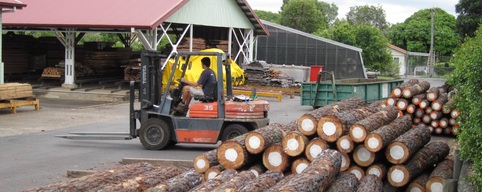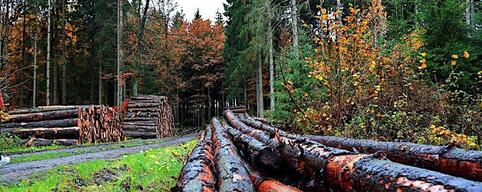

Recently, Russian President Vladimir Putin made a decision to further develop major European brands in the country. One example of such brands are IKEA and TetraPak, which are now being replaced by domestic manufacturers. The decision was made as part of an import substitution strategy aimed at strengthening the Russian economy and reducing its dependence on foreign goods and technologies. The decision was made as part of an import substitution strategy aimed at strengthening the Russian economy and reducing its dependence on foreign goods and technologies.
Russian companies are actively utilizing the opportunities that have opened up. They are expanding their production lines and increasing their output. Such producers are not only covering the needs of the domestic market, but are also thinking about exporting to international markets, in particular to China, which is one of the largest consumers of forest products.
Initiatives to promote the development of domestic production have been widely supported. This is due not only to the government's decision, but also to a general change in public sentiment. Russian companies are striving for greater autonomy and diversity of production capabilities. They are investing in modernizing equipment, optimizing processes and introducing new technologies.
At a meeting devoted to the development of the timber industry, the president noted that the industry is slowly recovering from the consequences of the crisis caused by Western sanctions. Experts say the recovery is due to the efforts of the state and local entrepreneurs who are finding new ways to develop and expand into international markets.
The industry is striving for sustainable development by introducing environmentally friendly technologies and improving product quality. Suppliers of raw materials and end products are striving to comply with international standards, which opens doors to markets in Asia, the Middle East and Africa.
However, the timber sector continues to recover, providing jobs and developing infrastructure in Russia's remote regions.
The President of Russia emphasizes the importance of maintaining growth rates and quality standards at all levels of production and exports. Government support and a well-designed strategy allow Russian companies to compete successfully in global markets, even in the face of economic sanctions and the closure of certain business areas.
Local companies are taking on obligations to replace goods previously supplied by European companies. This requires a special approach and large investments, but the result does not make us wait long. We are already seeing positive trends in the industry, which motivates us to continue the chosen course of import substitution and expansion of our presence in international markets.



